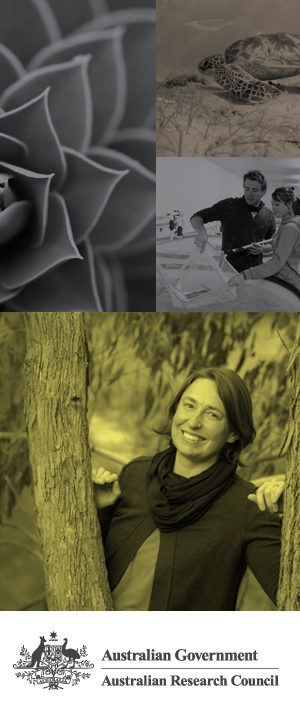Environmental research acknowledged
Research news
The quality of Deakin’s environmental science research programs has been reflected in the 2015 Excellence in Research Australia (ERA) ratings, announced today.
The ratings identify research excellence within Australia’s higher education institutions, against national and international benchmarks.
Within the Deakin theme of “Enabling a Sustainable World,” Deakin has a total of five disciplines (Field Of Research Codes) rated at World Standard or Above, with two receiving the top rating of 5, two receiving a 4, and one being awarded a 3.
Deakin University’s Deputy Vice-Chancellor (Research) Professor Lee Astheimer said that this success reflected “continuing effort, commitment and teamwork across the environmental science-related disciplines.”
“We are proud of our researchers. They are playing a key role in helping to protect our environment – on which we all depend – at a time when it is experiencing unprecedented pressure,” Professor Astheimer said.
“Supported by two Strategic Research Centres, the Centre for Integrative Ecology and the Centre for Rural and Regional Futures, our environmental scientists, zoologists, ecologists and evolutionary biologists are helping to protect Australia’s vulnerable flora and fauna from changing climate, intensive agriculture and a myriad of other impacts.
"In addition to understanding these challenges, they are working closely with land and conservation managers to develop innovative solutions to competing resource demands.”
She noted that Deakin scientists are helping to build complex knowledge of Australia’s animal and plant species, and their interconnectedness.
As one means of achieving this, supported by Deakin’s research vessel “Yolla”, fitted with high tech mapping technology, marine researchers have created a detailed continuous map of sea floor habitats of the entire coast of Victoria. These data and other fisheries research are assisting the aquaculture industry to improve productivity, maintain fish health and support sustainability.
Around the globe, Deakin scientists are also working with governments to improve water management – a pressing need, given the challenges of rapid development and climate change – and also with industry to facilitate the development of sustainable agricultural practices.
Over the past two years, Deakin environmental scientists have achieved major breakthroughs in identifying the role of marine predators, wetlands and sea grass in protecting blue carbon; understanding disease transmission in multiple threatened species; identifying migration patterns of several bird and marine species; and demonstrating the need for more sophisticated burning regimes to protect Australia’s fragile ecosystems from inappropriate fire management.
“A key element of Deakin’s research in these disciplines is a recognition of our global interconnectedness in the face of these challenges, and an understanding that it is through collaboration that we are most likely to solve them,” said Professor Astheimer.
“Only last month, Deakin hosted a workshop attended by experts from around the world, representing the International Union for the Conservation of Nature (IUCN) - the world’s biggest environmental organisation. Our researchers have played an important role in developing the IUCN’s Red List of Ecosystems, which is supported by governments, researchers and NGOs worldwide, and has influenced Australian policy.
“At this workshop, the steering committee created a draft strategic plan that will determine the direction for this important group over the next decade. The Red List will have a major impact across the globe – providing a way of tracking whole ecosystems over time and identifying those most in need of attention.”
ERA 2015 ratings - Enabling a Sustainable World:
Well above world standard (ERA ratings of 5): Environmental Science and Management; and Zoology.
Above world standard (ERA ratings of 4): Evolutionary Biology; and Fisheries Sciences.
At world standard (ERA rating of 3): Ecology.
For more information on Deakin's ERA results within our other research themes:
Share this story
 Dr Emily Nicholson is playing a key role in helping to develop the IUCN Red List of Ecosystems.
Dr Emily Nicholson is playing a key role in helping to develop the IUCN Red List of Ecosystems.
